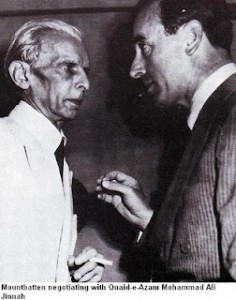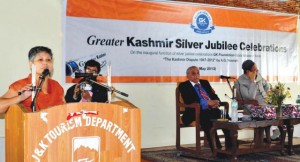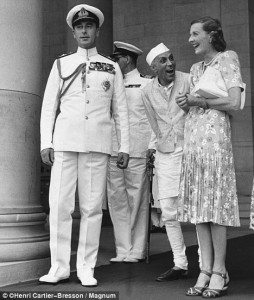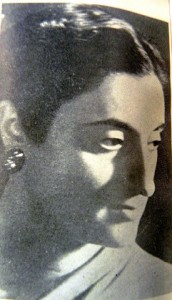Peace Watch » Editor's Take, Kashmir-Talk » A.G.Noorani On A Slippery Wicket
A.G.Noorani On A Slippery Wicket
Z.G. Muhammad
On two counts, I thank A.G. Noorani, one, for titling his book as, ‘The Kashmir Dispute 1947-2012.’ (No one now in New Delhi likes to call Kashmir as a ‘dispute’. Instead, they grapple with some “palatable” softer phrases for describing the imbroglio.) Two, for bringing question of the ‘accession of Jammu and Kashmir to India’ once again into sharp focus through his speech. 
In his speech on the release of his book, he made three points, one, Kashmir question would have been settled had Muhammad Ali Jinnah accepted the proposal of Lord Mountbatten on November 1, 1947. Two, Sheikh Muhammad Abdullah was not in favor of accession to India. He sent two emissaries to Pakistan- Bakshi Ghulam Muhammad and GM Sadiq. However, nobody met them and third, he asked people of Jammu and Kashmir to give up demand for implementation of UN resolutions as Pakistan had given it up. On the face of it sounded that he very subtly tried to absolve Nehru the main obstacle to solving the Kashmir dispute at the time of partition. On all the three points when put to litmus test he is on a slippery wicket.
The points raised need to be examined and analyzed in perspective of Kashmir related developments in New Delhi before the landing of Indian army at Srinagar. The Congress had started its moves of assimilating J&K into India right in 1946. Col Web wrote in July 1946 that ‘Nehru had developed a definite policy for the future of Jammu and Kashmir once British left. Under the leadership of Abdullah it was to be made into an anti-Pakistani (whatever shape Pakistan might eventually assume) zone to North of Punjab.’ In March 1947, when Mountbatten arrived in India Nehru had not changed his concept and used all opportunities to “infect” him “about Jammu and Kashmir and Sheikh Abdullah position there as a leader.” From June 1947, we see a beeline of the Congress leaders from Kriplani to Gandhi and Lord Mountbatten visiting Srinagar to ensure Jammu and Kashmir becoming part of India. In this column, it may not be possible to give details about all the moves initiated by the GOI before sending of army in October- these included building of roads, stationing of Patila troops and casting of a role for Abdullah before ensuring his release from Jail. ‘On 27 September 1947, exactly one month before landing of army at Srinagar Nehru wrote a detailed letter to Sardar Patel pleading releasing of Abdullah and enlisting the support of his followers for bringing about accession of Kashmir to the Union of India. Sheikh Abdullah was released on September 29. Few days later he left for Delhi for meeting Prime Minister Nehru’. (India after Gandhi by Ramachandra Guha page 63) ‘He stayed with Nehru at 17 York Road. ‘Nehru summoned his daughter Indira from Lucknow to improve the kitchen as the Sheikh’s love for good food was famous.” (Kashmir Behind vale By Akbar p 105). ‘Not only did Nehru stop Kashmir Prime Minister Mahajan from meeting Jinnah but also warned Sheikh Abdullah not to think of going to Pakistan to meet him’- “Any direct contact should be avoided.” (Shameful Flight Stanly Wolpert p 187).
Nehru’s September 27 letter to Sardar Patel sounding alarm bells indicates, “Senior politicians in New Delhi had decided weeks before 15 October that such an accession of Kashmir with India was essential to Indian interests.” It is not that Mountbatten was unawares about these moves, Alistair Lamb blames him of not only ‘having failed in preventing emergence of Kashmir Problem’ but also ‘bursting conflict into flames.’ He charges him of “colluding with V.P. Menon in the fabrication of Maharaja Hari Singh’s Instrument Accession to India on 26 October 1947. It seems extremely unlikely that he was not aware of the fact that Menon did not go up to Jammu on 26 October to obtain this document, and that therefore, the India troops (under general command of British Officer Lt. General Dudely Russel) arrived at Srinagar Airfield on the morning of 27 October before any Instrument of Accession had been signed…(Incomplete Partition p337-338). Josef Korbel also questions Menon’s visit to Jammu. 
The Mountbatten’s offer to Jinnah in Lahore on 1 November 1947 mentioned vol 1 of Noorani’s book to which he made a reference in his speech and accused Jinnah of being responsible for non-settlement of the Kashmir dispute needs to seen in perspective of the developments that caused this meeting. The exchange of telegram between India, Pakistan and Britain during the period indicates Pakistan was eager for having this meeting for reasons India sending troops to Kashmir, killings in Jammu and rising passion in Pathans against these killings. One of India’s profound contemporary historian Guha writes about it, “On 1 November 1947 Mountbatten had contentious meeting with Jinnah, in which he was told if India gave up its claim to Kashmir, Pakistan would relinquish its claim on that other disputed state Jungadh. Jinnah described Kashmir accession as based on fraud and violence.” (India after Gandhi p70).
‘Jinnah was dying and Liquate was bedridden with a bleeding with ulcer’ still Jinnah wanted to engage with India and hoped Mountbatten would fly with Nehru to discuss with him how best to resolve the conflict over Kashmir. Nehru claimed he was “ill”. If Nehru was ill he could have send Sardar Patel Jinnah had rightly questioned Mountbatten. To quote Wolpert, “Nehru’s tempers flared up and he refused to discuss anything with Jinnah leaving Mountbatten to fly with Ismay to Lahore for their last meeting with Jinnah”. Notwithstanding, ‘Mountbatten as Constitutional Governor General could not negotiate a settlement. Jinnah proposed a three point peace plan to him to place the same immediately before Indian dominion.’ Briefly the points were one, empowering two Governor Generals to issue proclamation forthwith giving forty eight hours for ceasefire, the dominions jointly making war against tribesmen if they do not agree to leave Jammu and Kashmir, two withdrawal of forces of two dominions and tribesmen simultaneously and expeditiously from Jammu and Kashmir territory.’ In third point, Jinnah categorically not only called for holding of plebiscite but also suggested a modus operandi:
“With sanction of two Dominion Governments the two Governor Generals to be given full powers to restore peace, undertake administration of Jammu and Kashmir and arrange for plebiscite without delay under the joint control and supervision” (Essential Documents and Notes on Jammu and Kashmir by P.L. Lakhanpal p73 published on 31 Dec 1958).
The Prime Minister of Pakistan through a telegram dated November 4, shared Jinnah’s three-point proposal on Kashmir sent to India with the Prime Minister of Britain. It sound ironic, when Noorani alluded to Mountbatten’s six point offer in his speech that he had drafted in plane without approval of his government and did not mention Jinnah three point proposal. Mountbatten mentions in his 2 November note to Nehru about this ‘offer’ but there is no note suggesting that Indian Cabinet ever approved it. In the same note, Mountbatten admits that Jinnah had reservation about holding plebiscite in Jammu and Kashmir without total withdrawal of troops.
The question that one could ask Noorani, if Jinnah did not agree to 1 November offer of Mountbatten for holding plebiscite in Kashmir, what prevented India for holding plebiscite after UN adopted resolutions on the same- Pakistan was committed to these resolution.
Published in Greater Kashmir 20-5-2013
Filed under: Editor's Take, Kashmir-Talk · Tags: Abdullah, Freedom Struggle, Jinnah, Kashmir Dispute, Lord Mountbatten, Nehru, Z. G. muhammad








"The Kashmir Dispute" Vol 1&@.
is available at all bookstore.
Authentic observation with right facts and figures. A. G. Noorani perhaps wants to push the appeasement done by Nehru and others under the carpet by blaming everything on Jinnah.
Madam,love affairs are not history. They are emotions. Our literate younger generations cant be befooled by branding everything as s…chooci samjee gehree sazish. Specific questions deserve specific answers and our learned columnists owe it to them to unravel the mysteries of history by more relevant facts and not responding by saying,as Sohail elequently pu it, Bananas are sweet when asked why grapes are sour.If they dont educate us who will.?